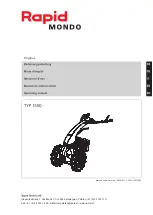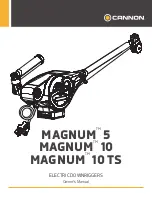
Page 4
Fig. 2.5 Long Time/Short Time/Ground/Protection
(LSG)
1 .3 Testing
To test the trip unit, use the integral test panel. (See Sec
tion 5.0.)
2.0 UL LISTED DEVICES
Digitrip
RMS 51 0
Trip Units are "Listed"
by
the U nderwrit
ers Laboratories, Inc.® U nder UL File E781 9, for use in
types OS, DSL, SPB and Series c® A-Frame circuit
breakers.
3.0 PRINCIPLES OF OPERATION
3.1 General
The Digitrip RMS 51 0 trip unit is designed for use in
industrial circuit breaker environments where the ambient
temperatures can range from -20 C to +85 C and rarely
exceed 70 to 75 C. If, however, temperatures in the
neighborhood of the trip unit do exceed this range, the
trip unit performance may be degraded. In order to insure
that the tripping function is not compromised due to an
over-temperature condition, the Digitrip RMS 51 0 micro
computer chip has a built-in over-temperature protection
feature, factory set to trip the breaker if the chip tempera
ture exceeds 95 C. If over-temperature is the reason for
the trip, the Long Delay Time LED will light "RED".
I.L. 29-8858
Fig. 2.6 Long Time/Short Time/Instantaneous/Ground
Protection (LSIG)
The Digitrip RMS 51 0 Trip unit provides three basic func
tions: Protection, Information and Testing. A typical trip
unit and rating plug are illustrated in Fig. 1 . Individual
product instruction leaflets referenced in Section 9.0 illus
trate typical Digitrip RMS Trip U nits installed in specific
breakers.
The trip unit employs the Cutler-Hammer Inc. custom
designed integrated circuit S�RE + chip, which includes a
microcomputer to perform its numeric and logic functions.
The principle of operation is described by the block dia
gram shown in Fig. 3.
In the Digitrip RMS 510 Trip U nit, all required sensing and
tripping power to operate its
protection function
is
derived from the current sensors in the circuit breaker.
The secondary currents from these sensors provide the
correct input information for the protection functions, as
well as tripping power, whenever the circuit breaker is
carrying current. These current signals develop analog
voltages across the appropriate calibrating resistors
including:
1) Phase currents
2) G round current (when supplied)
3) Rating plug
The resulting analog voltages are digitized by the custom
designed integrated circuits.
Effective May 1 997
www
. ElectricalPartManuals
. com
















































